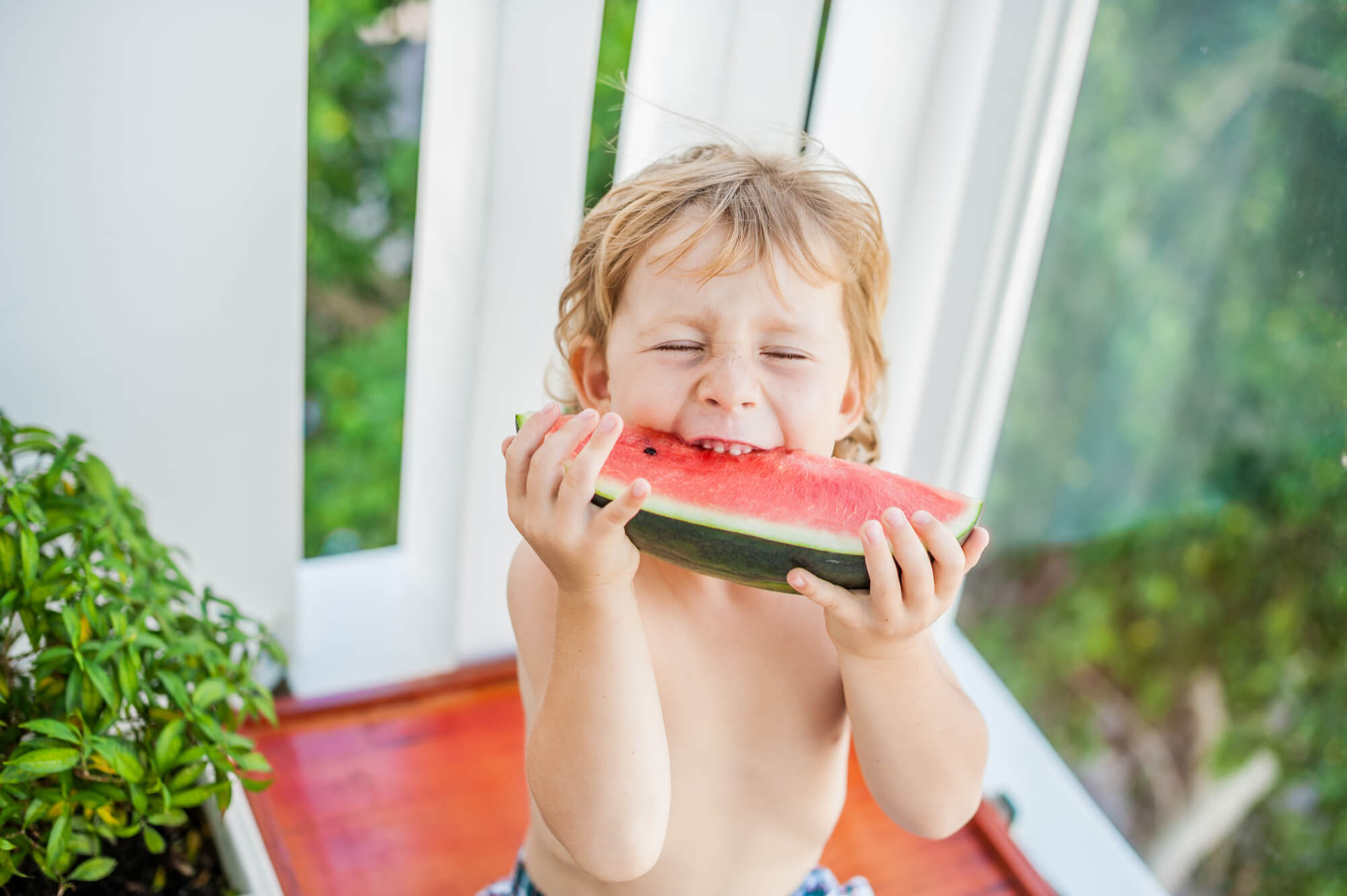Watermelon allergy: symptoms and treatment methods


Eva Zakharova
What are the causes of watermelon allergy?
The main cause of watermelon allergy is the hypersensitivity of the immune system to certain proteins present in this fruit. In some people prone to allergic reactions, the body may mistakenly perceive these proteins as hostile and trigger an allergic reaction.
Symptoms of watermelon allergy

Watermelon allergy can manifest with various symptoms, including skin manifestations, gastrointestinal reactions, and respiratory symptoms.
1. The following are some of the common symptoms of watermelon allergy:
- itching and redness of the skin;
- swelling, especially of the face and lips;
- runny nose, nasal congestion;
- sneezing;
- nausea and vomiting;
- diarrhea or constipation;
- abdominal pain.
2. Skin manifestations of the allergy can include hives, itching, redness, and swelling of the skin. In some cases, atopic dermatitis or eczema may develop.
3. Allergy to watermelons in adults and children can cause gastrointestinal symptoms such as nausea, vomiting, abdominal pain, diarrhea, or constipation. In rare cases, the allergy can trigger anaphylactic shock, which is a life-threatening condition.
4. The allergy can also manifest with respiratory symptoms, including difficulty breathing, cough, nasal congestion, sneezing, and eye irritation. In rare cases, asthma may develop.
Diagnosis of watermelon allergy
If you suspect that you or your child has a watermelon allergy, you should seek the advice of an allergist or immunologist. The doctor will take a medical history, perform an examination, and if necessary, order additional tests to confirm the diagnosis.
Skin tests are one of the most common methods for diagnosing watermelon allergy. During the skin test, a small amount of the allergen is applied to the skin, and the body's reaction is observed. If there is redness or itching, it indicates the presence of an allergy.
Another method for diagnosing watermelon allergy is a blood test for antibodies. Specific antibodies to watermelon allergens are identified in the blood, which allows confirmation or exclusion of the allergy.
Treatment and prevention methods

After confirming the diagnosis, the doctor will prescribe appropriate treatment and recommendations for preventing watermelon allergy.
The main method of treating watermelon allergy is complete elimination of this product from the diet. It is important to avoid not only fresh watermelon, but also products containing its components, such as drinks, candies, or smoothies.
The use of antihistamines
Antihistamines (Cetirizine, Levocetirizine, Desloratadine, Fexofenadine, Loratadine, Ebastine) can help alleviate symptoms of watermelon allergy, such as itching, swelling, or runny nose. It is important to consult with a doctor about the appropriate medication and dosage.
Prevention of watermelon allergy
To prevent watermelon allergy, it is necessary to monitor your diet, avoid products with watermelon, and be attentive to the composition of food products. It is also important to regularly see an allergist.
Watermelon allergy in children

Watermelon allergy in a child can manifest with the same symptoms as in adults, but children may be more sensitive to allergens.
In children, the immune system is not yet fully formed, so watermelon allergy can occur even after the first consumption of the product. In addition, in children, the allergy can be more pronounced and cause more severe symptoms.
Age threshold for consuming watermelon
It is recommended to start introducing watermelon into a child's diet no earlier than 8-10 months, starting with small portions and gradually increasing them. If your child has a predisposition to allergies, it is better to discuss this with a pediatrician.
Treatment of watermelon allergy in infants
If a child is confirmed to have a watermelon allergy, it is important to exclude this product from their diet and monitor the composition of purchased food products. In case of allergy symptoms, it is necessary to consult a pediatrician, who will prescribe appropriate antihistamines and recommendations for allergy prevention.
In conclusion, watermelon allergy is quite common among adults and children. If you or your child experience allergy symptoms after consuming watermelon, it is necessary to seek medical advice for diagnosis and treatment. Following the doctor's recommendations and preventing allergies can help avoid unpleasant consequences and maintain health.
New materials
Popular Articles
We recommend reading
Contact us in the Contact Us section to ask questions, offer ideas, or for more information about our allergy resource.
Our articles are your trusted source of allergy knowledge. Learn how to make life with allergic reactions easier on our specialized portal.
©
Lechenie-Allergii.com. All rights reserved.
© Lechenie-Allergii.com. All rights reserved.
The information on this site is for informational purposes only and is not a substitute for professional medical advice. We recommend consulting with qualified medical professionals for accurate information and advice.
 English
English  Українська
Українська  Русский
Русский 









